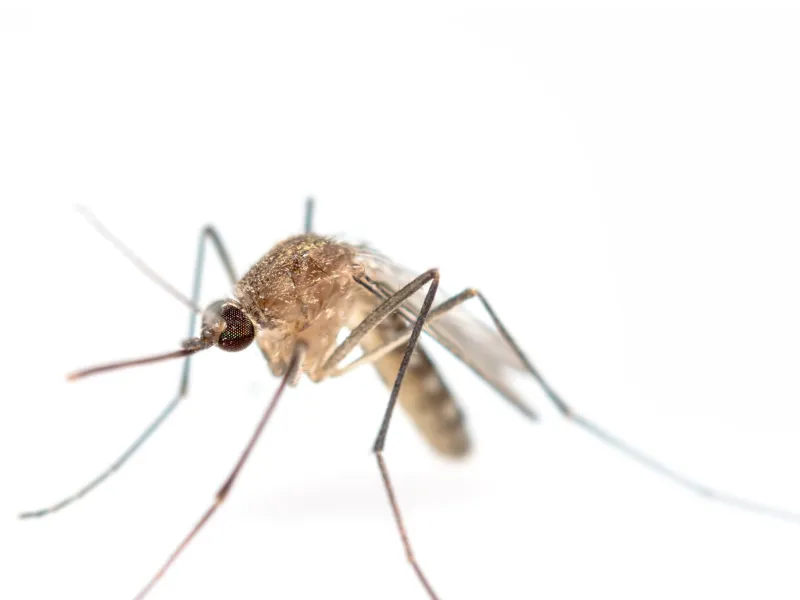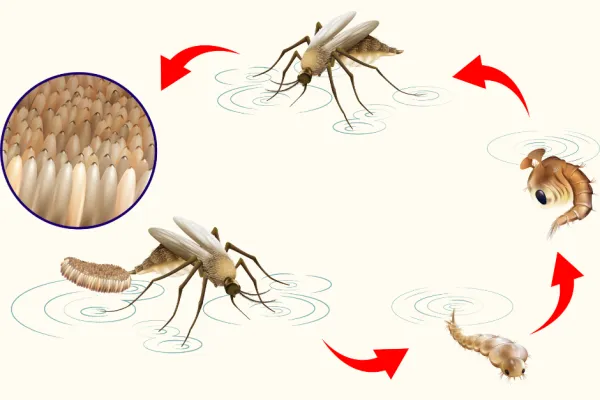Debunking Common Myths About Mosquitoes

Mosquitoes are often considered one of the most annoying and dangerous pests due to their itchy bites and potential to spread diseases. You've probably heard many things about these little buzzers, but are they all true? Let's uncover the most common myths about mosquitoes and uncover the truth.
Myth 1: All Mosquitoes Bite Humans
Fact: Not all mosquitoes bite humans. Only female mosquitoes bite because they need a certain protein from blood to reproduce. Male mosquitoes feed solely on nectar and other plant juices. Furthermore, not all species of mosquitoes prefer human blood; some are more attracted to animals, birds, or amphibians.
Myth 2: Mosquitoes Only Come Out at Night
Fact: While many mosquitoes are most active during dawn and dusk, some species, like the Aedes mosquito, are active during the day. These day-biting mosquitoes are known vectors for diseases like dengue fever, Zika virus, and chikungunya.
Myth 3: Mosquitoes Are Attracted to Light
Fact: Mosquitoes are not necessarily attracted to light. They are drawn to the carbon dioxide we exhale, body heat, and other chemical cues. We often see mosquitoes around lights at night because they are already in the area and are attracted to the heat and carbon dioxide from nearby people.
Myth 4: All Mosquitoes Spread Disease
Fact: While some mosquitoes are vectors for diseases such as malaria, dengue, Zika, and West Nile virus, not all mosquitoes carry or spread these diseases. Disease transmission depends on the species of mosquito, the presence of pathogens, and environmental factors.
Myth 5: Mosquitoes Die After They Bite
Fact: Unlike bees, mosquitoes do not die after biting. A female mosquito can bite multiple hosts throughout her lifetime, which allows her to produce several batches of eggs. If she is a carrier, this increases the likelihood of disease transmission.
Myth 6: You're Safe From Mosquitoes Indoors
Fact: While indoors can reduce exposure to mosquitoes, it does not guarantee complete safety. Mosquitoes can enter homes through open doors, windows, or small cracks. Using screens, keeping doors and windows closed, and professional mosquito control services can help reduce the risk.
Myth 7: Bug Zappers Are Effective Against Mosquitoes
Fact: Bug zappers are not very effective against mosquitoes. These devices attract insects with ultraviolet light, but mosquitoes are not significantly drawn to UV light. Instead, they are attracted to carbon dioxide and heat. Bug zappers may kill many harmless insects while leaving mosquitoes largely unaffected.
Myth 8: Eating Certain Foods Can Repel Mosquitoes
Fact: No scientific evidence exists that eating specific foods, such as garlic or bananas, can effectively repel mosquitoes. While some foods may have a minimal effect on your scent, they are unreliable methods for mosquito prevention. Using proven repellents and wearing protective clothing are more effective measures.
Myth 9: Mosquitoes Prefer Certain Blood Types
Fact: Some studies suggest that mosquitoes may be more attracted to people with type O blood than to people with other blood types. However, this preference is not strong enough to be a reliable factor in mosquito prevention. Factors like body heat, carbon dioxide output, and skin microbiota play a more significant role in mosquito attraction.
Myth 10: All Mosquito Bites Cause Disease
Fact: Not all mosquito bites result in disease transmission. The majority of mosquito bites only cause mild itching and irritation. However, it is essential to be aware of the risk of diseases in areas where mosquito-borne illnesses are prevalent and to take appropriate precautions.
Relying on accurate information and understanding the facts about mosquitoes can help you protect yourself and your loved ones more effectively. Contact the Palmetto Experts, eliminate standing water, and take other preventive measures to minimize your risk of mosquito bites and the potential diseases they may carry.
By debunking these myths, we hope to provide a clearer picture of mosquito behavior and the importance of effective mosquito control. Stay informed, stay protected, and enjoy the outdoors without the buzz and bite of these pesky insects.


